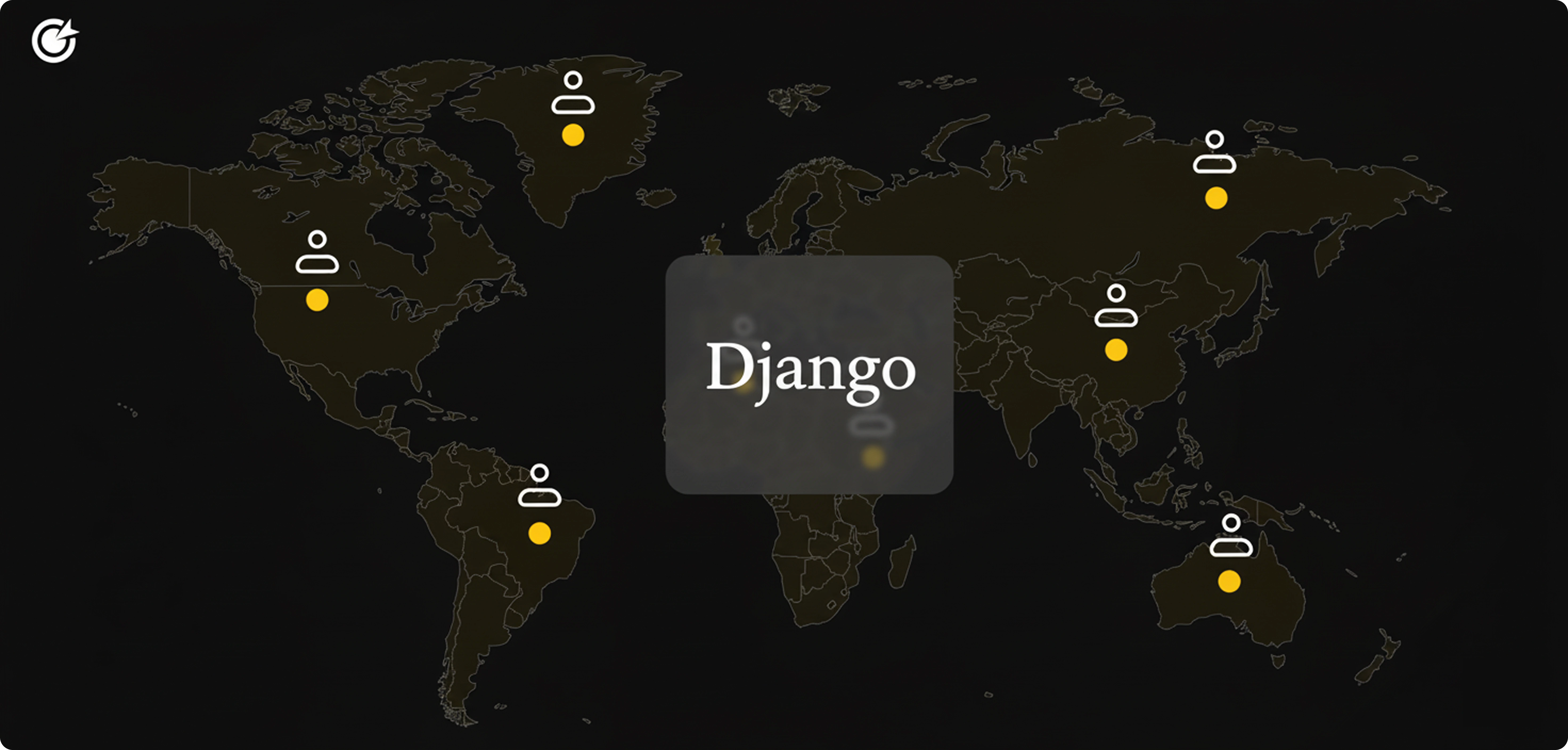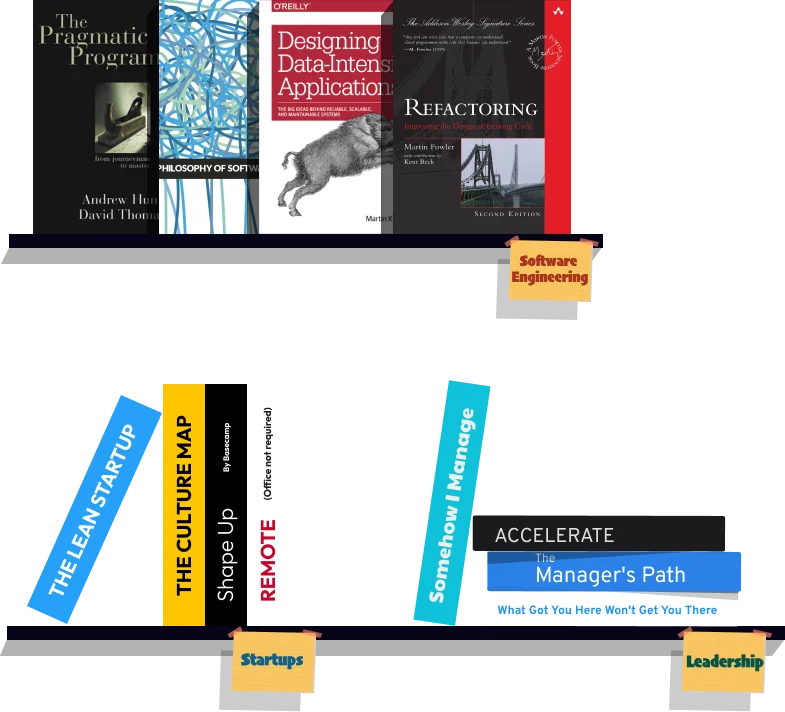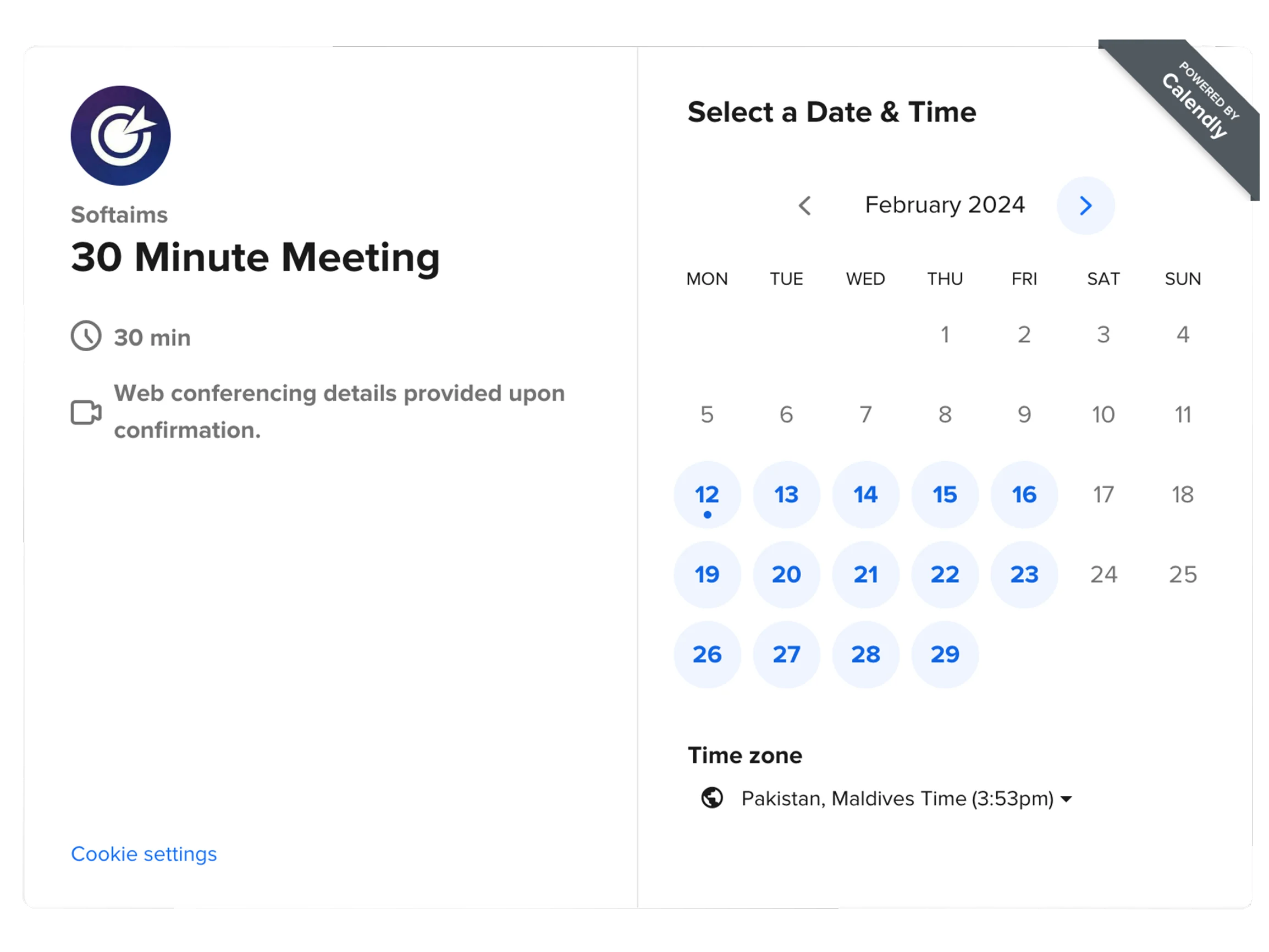The "Batteries-Included" Power of a Django Developer
A Django developer is a specialized Python professional who builds secure, scalable, and feature-rich web applications with incredible speed. They leverage Django's "batteries-included" philosophy, which provides a vast array of built-in tools for common web development tasks, from an object-relational mapper (ORM) to a secure authentication system.

Hiring for this role means bringing in an engineer who values convention over configuration and rapid development without sacrificing quality. Their expertise is crucial for building complex, data-driven applications, content management systems, and sophisticated APIs in a structured and maintainable way.
Expertise in Python Fundamentals
First and foremost, a Django developer must be an expert in Python. Since Django is a Python framework, a deep and practical understanding of the language's syntax, data structures, and object-oriented principles is an absolute prerequisite. This includes being comfortable with concepts like list comprehensions, decorators, and Python's packaging system.
This strong Python foundation is essential for writing clean, efficient, and "Pythonic" code within the Django framework. A developer who understands the language well can fully leverage Django's power and debug issues more effectively, leading to a higher-quality and more performant application.
The Django ORM and Database Management
One of Django's most powerful features is its built-in Object-Relational Mapper (ORM). A proficient developer must have a mastery of the Django ORM to interact with the database using Python code instead of writing raw SQL. This includes defining models in models.py, creating relationships, and querying the database with the ORM's powerful API.
They should be able to write complex queries, such as those using filter(), exclude(), and annotations (e.g., .annotate(Count('related_model'))). Furthermore, expertise in managing database schema changes through Django's migrations system is a non-negotiable skill for any collaborative project.
Views, URLs, and The Request-Response Cycle
A Django developer must have a thorough understanding of the framework's core request-response cycle. This involves expertise in mapping URLs in urls.py to specific view functions or classes that handle incoming requests. They need to be skilled in both function-based and class-based views (CBVs).
A strong candidate can confidently handle request and response objects, process user input from forms, and render templates with context data. This fundamental knowledge is the key to building any dynamic page or API endpoint within a Django application.
The Django Template Language
For applications that serve HTML directly, a developer must be proficient with the Django Template Language (DTL). They should be able to render dynamic data in templates using variables, and control the presentation logic using template tags (like {% for item in list %}) and filters (like {{ date|date:"F j, Y" }}).
An experienced developer will also understand template inheritance, a powerful feature that allows for the creation of a base layout with blocks that can be overridden in child templates. This helps to keep the front-end code DRY (Don't Repeat Yourself) and highly maintainable.
Building APIs with Django REST Framework
In modern web development, Django is most often used to build powerful APIs. A top-tier Django developer must be an expert in Django REST Framework (DRF), the de facto toolkit for building RESTful APIs in Django. This requires a deep understanding of serializers for converting data, viewsets for abstracting logic, and routers for URL generation.
They should be able to implement authentication (e.g., token-based authentication), permissions, and filtering to create secure and efficient API endpoints. Proficiency in DRF is often the single most important skill for a modern Django backend role.
Built-In Django Apps
Django's "batteries-included" nature means it comes with a rich set of built-in applications. A skilled developer leverages these tools to speed up development. They must have extensive experience with the robust authentication and authorization system, which handles user accounts, groups, and permissions.
Furthermore, they should be highly proficient with the Django Admin site, one of the framework's killer features. An expert knows how to customize the admin interface to create a powerful internal tool for managing an application's data with minimal effort, saving countless hours of development time.
Testing in a Django Environment
Django has a strong culture of testing, and a professional developer must be committed to it. They should have hands-on experience writing unit and integration tests using Python's built-in unittest library and Django's test-specific tools and helpers. This includes using the test client to simulate requests to their application.
The ability to write thorough tests for models, views, and forms is essential for ensuring the application is reliable, maintainable, and free of regressions. A developer who writes tests is a developer who builds high-quality, production-ready software.
Security Best Practices in Django
Django comes with built-in protections against many common web vulnerabilities, but the developer must know how to use them correctly. A security-conscious candidate will have a strong understanding of how Django helps prevent attacks like Cross-Site Scripting (XSS), Cross-Site Request Forgery (CSRF), and SQL injection.
They must follow best practices, such as never deploying with debug mode turned on in production, using Django's CSRF tokens correctly, and properly managing secret keys and other sensitive configuration details. This focus on security is critical for building a trustworthy application.
Deployment and Performance
Building an application is only part of the job; deploying it is the other. A well-rounded Django developer should have experience with the deployment process. This includes an understanding of how to configure a WSGI server like Gunicorn and set up a web server like Nginx to serve a Django application in production.
They should also be knowledgeable about performance optimization techniques, such as implementing caching strategies, optimizing database queries with select_related and prefetch_related, and using tools like the Django Debug Toolbar to identify and resolve performance bottlenecks. This ensures the application remains fast and responsive as it scales.
How Much Does It Cost to Hire a Django Developer
The cost to hire a Django developer is influenced by their geographic location, overall years of experience, and their proficiency with related technologies like Django REST Framework and cloud deployment. As specialists within the Python ecosystem, their skills are in high demand for building robust, data-driven web applications.
Salaries in North America and Western Europe are typically the highest. The following table provides an estimated average annual salary for a mid-level Django developer in several different countries.
| Country |
Average Annual Salary (USD) |
| United States |
$128,000 |
| United Kingdom |
$88,000 |
| Germany |
$82,000 |
| Canada |
$98,000 |
| Australia |
$92,000 |
| Poland |
$58,000 |
| Ukraine |
$53,000 |
| India |
$38,000 |
| Brazil |
$48,000 |
| Netherlands |
$85,000 |
When to Hire Dedicated Django Developers Versus Freelance Django Developers
Hiring a dedicated, full-time Django developer is the best strategy for building and maintaining a complex, core business application. This model is ideal for long-term projects that require a deep understanding of business logic, a scalable architecture, and continuous feature development. A dedicated developer provides stability and long-term ownership of the codebase.
Hiring a freelance Django developer is a more tactical choice, perfect for short-term projects with a clearly defined scope. This is an excellent option for building a minimum viable product (MVP), developing a specific feature or API, or getting expert help to solve a particular technical problem. Freelancers offer flexibility and can be a cost-effective way to get a project up and running quickly.
Why Do Companies Hire Django Developers
Companies hire Django developers primarily for speed and reliability. Django's "batteries-included" philosophy means it comes with a vast amount of built-in functionality, from a secure authentication system to a powerful admin interface. This allows developers to build complex, feature-rich applications much faster than they could with a more minimal framework, significantly reducing time-to-market.
Furthermore, Django's mature, well-structured architecture promotes the development of high-quality, maintainable code. Its emphasis on security, scalability, and convention over configuration makes it a trusted choice for building serious, data-driven applications that are designed to grow and evolve over time. This makes it a go-to framework for startups and established companies alike.
In conclusion, hiring a top-tier Django developer means finding a Python expert who has fully embraced the framework's "batteries-included" and convention-based philosophy. The ideal candidate will combine mastery of the ORM, DRF, and built-in apps with a disciplined approach to testing, security, and deployment. By prioritizing developers who can leverage Django's power to build complex applications rapidly without sacrificing quality, companies can create robust, scalable, and secure web services that are built for long-term success.



































